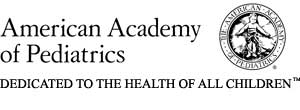

August 5, 2002 — For the more than 60 percent of new mothers who decide to breastfeed their babies, the American Academy of Pediatrics' "New Mother's Guide to Breastfeeding" (Bantam Books/Trade Paperback, August 6, 2002/$13.95) provides answers that first-time mothers can trust.
Realizing that it takes time and practice for mom and baby to adjust to the new routine, the book gives easy-to-understand guidance and the latest medical findings to ensure that the breastfeeding experience is a healthy and positive one. With more than 50 illustrations and drawings, numerous Q & A sidebars addressing common questions and concerns, personal recollections from other first-time mothers, and a reference guide of breastfeeding resources, the guide is an indispensable tool for brand new moms. Some of the important topics covered include:
What distinguishes this book from other reference books in bookstores and on library shelves is that it has been written and extensively reviewed by pediatricians. Under the direction of lactation expert and pediatrician Joan Younger Meek, M.D., editor-in-chief, the material in this book was developed with the assistance of numerous reviewers and contributors from AAP technical committees and sections.
The breastfeeding guide is the latest in a series of books developed by the AAP for parents. This book is part of the AAP's ongoing educational efforts to provide parents and caregivers with high-quality information on a broad spectrum of children's health issues. Previous AAP books include "Guide to Your Child's Sleep," "Guide to Your Child's Nutrition" and "Guide to Your Child's Symptoms." Other books from the AAP include "Caring for Your Baby and Young Child, Birth to Age 5" "Caring for Your School-Age Child, Ages 5 to 12" and "Caring for Your Adolescent, Ages 12 to 21."
Parents can order the "New Mother's Guide to Breastfeeding" by calling the AAP order line at 1-888-227-1770, or by visiting its on-line bookstore at http://www.aap.org/pubserv/breastfdbook.htm.
The recommendations in this statement do not indicate an exclusive course of treatment or serve as a standard of medical care. Variations, taking into account individual circumstances, may be appropriate.